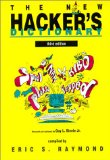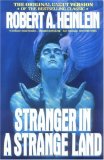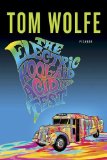Definition and Origin of ‘Grok’
‘Grok’ is a fairly common word amongst geeks and techies, and usage is especially dense within the Computer Science university crowd, but it hasn’t really permeated mainstream usage. So where did the word ‘grok’ come from? What exactly does it mean? Have you grokked grok? It only makes sense that a site called GrokCode should try to answer some of these questions.
Those of us who weren’t children of the 60s missed out on the era when ‘grok’ was coined and subsequently picked up in science fiction and the counterculture of the 60s and early 70s. The term has stayed fairly popular in hacker culture, despite its lack of common mainstream usage.
Robert A. Heinlein coined the word ‘grok’ in the 1961 Hugo award-winning novel, Stranger in a Strange Land. The novel was an international bestseller advocating a free love lifestyle while disparaging authority and organized religion.
The main character, Valentine Michael Smith, was born during the first manned trip to Mars. He was the sole survivor of the mission, and was raised by Martians. When he is brought back to Earth years later by a rescue team, he brings with him the culture and vocabulary of the Martian culture, including the word grok, which means literally ‘to drink,’ but could be loosely translated as ‘to understand’ or ‘to thoroughly absorb knowledge.’ One of the other characters in the book defines it:
Grok means to understand so thoroughly that the observer becomes a part of the observed—to merge, blend, intermarry, lose identity in group experience. It means almost everything that we mean by religion, philosophy, and science—and it means as little to us (because we are from Earth) as color means to a blind man.
The term was then appropriated for use in other works of the 60s and 70s, mainly in the science fiction and 60s counterculture realm. T-shirts and bumper stickers with the phrase “I grok Spock” were popular among Trekkies, and can still be found today.
References to grok appeared in several books including: The Illuminatus Trilogy (a satirical, postmodern adventure story that examines various conspiracy theories through the eyes of different belief systems), Remember, Be Here Now (describes the spiritual journey of a man who discovers acid, yoga, and Hinduism), The Family (a nonfiction account of Manson Family), and The Electric Kool-Aid Acid Test. Uses of the word grok were fairly consistent with Heinlein’s original definition. Here is an excerpt from The Acid Test describing an acid trip:
… where they sit in cars with special amethyst-tinted windows and grok in fullness the Pacific sun as it comes through the weird glass
The word was later woven into hacker culture, appearing in the earliest editions of the Jargon File from the early 80s, which was later edited and republished by famous programmer Eric S. Raymond under the title The New Hacker’s Dictionary.
 The primary definition given there is consistent with Heinlein’s, but the more religious and mystical connotations have been dropped:
The primary definition given there is consistent with Heinlein’s, but the more religious and mystical connotations have been dropped:
To understand. Connotes intimate and exhaustive knowledge. When you claim to ‘grok’ some knowledge or technique, you are asserting that you have not merely learned it in a detached instrumental way but that it has become part of you, part of your identity. For example, to say that you “know” LISP is simply to assert that you can code in it if necessary — but to say you “grok” LISP is to claim that you have deeply entered the world-view and spirit of the language, with the implication that it has transformed your view of programming. Contrast zen, which is similar supernal understanding experienced as a single brief flash. See also glark.
Used of programs, may connote merely sufficient understanding. “Almost all C compilers grok the void type these days.”
Condensing the above into something nice and pithy gives:
grok (grŏk) tr.v. grok·ked, grok·king, groks
To understand intimately and completely in a worldview transforming way.
So can you grok it?





Discussion on
Definition and Origin of ‘Grok’
by Jess Johnson in Extras
2 Comments
8:54 pm UTC, 2009-01-13
8:22 am UTC, 2012-05-25Leave a reply